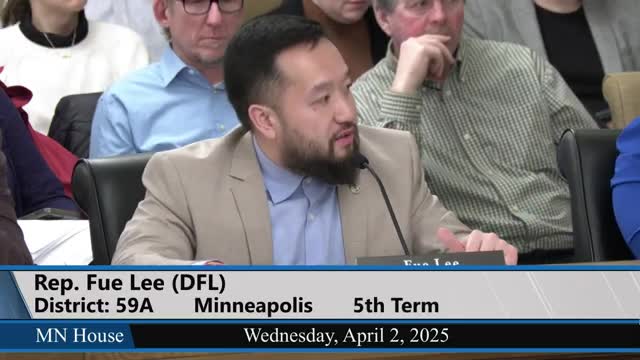Article not found
This article is no longer available. But don't worry—we've gathered other articles that discuss the same topic.
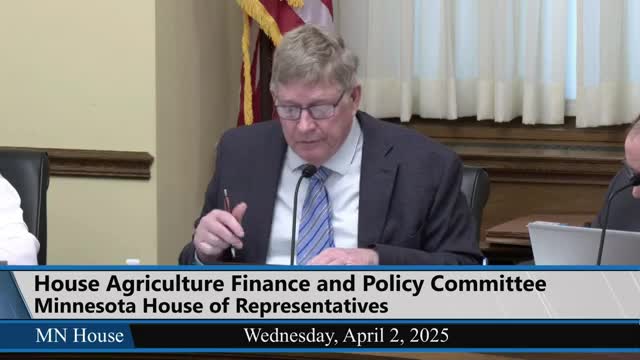
Minn. bill would let commercial feed businesses employ veterinarians to address rural shortages
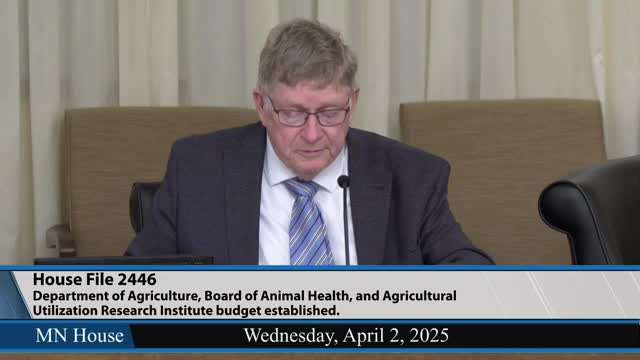
Broad MDA budget bill advances; grain-fee increases draw industry opposition
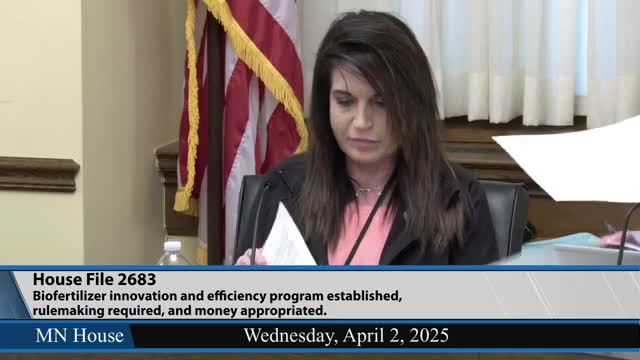
Proposal would pay farmers to reduce synthetic nitrogen by substituting biological products
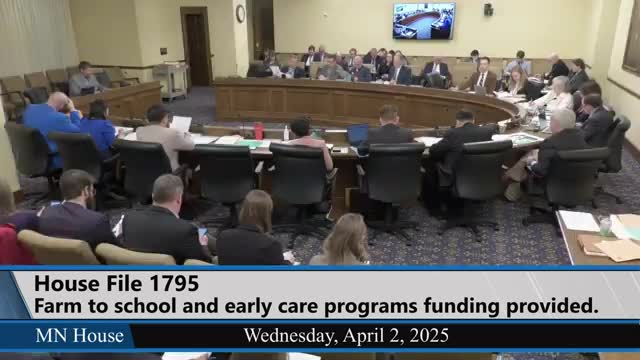
Lawmakers hear calls to restore funding for Farm to School and early-care care program
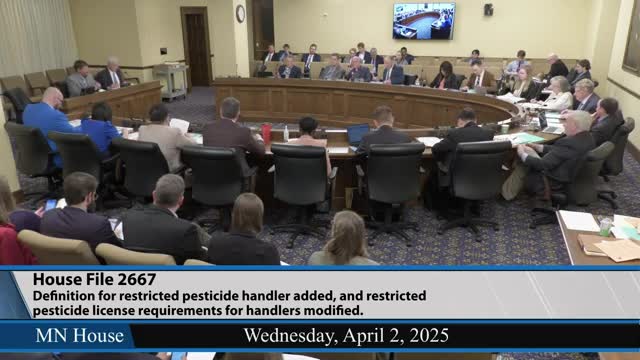
Committee advances change to restricted-use pesticide rule to allow supervised handlers without full applicator license
